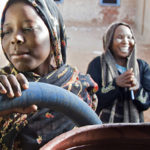Political impact and implications: Initial analysis suggests that governments' poor management of the Ebola crisis has generated frustrations and exposed citizens’ lack of trust in their governments. The Ebola crisis is likely to play a very political role in the next election in Sierra Leone and there are predictions that the opposition will win as a result. Economic impact ...» more
Service delivery
Decentralisation and local government
Estimates suggest that decentralisation is being pursued in over 80% of developing countries worldwide. For many people, local government is the part of government that most directly impacts on their lives, particularly via the provision of services like water, sanitation, and primary education and healthcare. Further resources The following resources were included in GSDRC's ...» more
Service delivery
Equitable access to essential public services is vital for human development, inclusive growth, and tackling persistent inequality. This topic guide provides an overview of the best available evidence on inclusive service delivery. It includes lessons from cases where aid has been effective at addressing weak front-line incentives, where services have been delivered in very ...» more
Community-driven development and indigenous, ethnic minority, and disability issues
Few CDD programmes explicitly address minority issues. Many programmes target vulnerable groups such as women, youth, disabled, ethnic minorities, but as one group rather than distinguishing their differing needs. Few programmes are targeted specifically at vulnerable groups alone. Many programmes focus on reducing poverty and vulnerability, with the implicit assumption that ...» more
Integrated programmes supporting adolescent girls
This rapid review provides examples of integrated programmes that support adolescent girls. The programmes have positive impacts on girls’ empowerment, livelihoods, health and education. Evaluations found that girls especially appreciated having a nearby safe space of their own and being educated by their peers. Girls who participate in integrated programmes may experience the ...» more
Supporting local governance in protracted conflicts
Successful interventions to support the delivery of services by local governments and administrations have been undertaken in a number of countries, including Afghanistan, Nepal, Somalia and Sudan. The majority of these interventions fall into the community-based approaches category. These are often used in areas where there is no effective local government or where supporting ...» more
Lesbian, gay, bisexual, transgender and intersex rights in national human rights institutions
NHRIs almost unanimously take a universal human rights stance which is validated and backed up by the UN. This institutional support allows NHRIs to criticise governments for failing to support certain human rights. NHRIs often emphasise that LGBTI rights are contained within existing UN rights principles, particularly the rights to privacy, health, life, freedom from ...» more
Working with members of parliament’s constituency funds
The key points from this rapid literature review include: CDFs are a relatively recent phenomenon (with most being established from the 2000s onwards), and they are relatively few in number (Barkan & Mattes, forthcoming). As a result, little is known about them. Countries that have used CDFs include: South Sudan; Philippines; Honduras; Nepal; Pakistan; Jamaica; Solomon Islands; ...» more
New thinking on governance issues
There is a wide and diverse literature on political economy, public administration, public financial management, procurement, and social accountability. This literature search is neither comprehensive nor exhaustive, but instead a rapid review that looks to identify literature that provides novel approaches or insights, as well as notable literature that provides a good ...» more
Benefits of urbanisation in Asia
This report reviews selected literature on urbanisation in East, South and South-East Asia, and draws out its developmental benefits and lessons for donors. There is a strong evidence base on urbanisation and urban poverty, but mostly looking at the development challenges of increasing urbanisation. Since the literature largely takes a negative or problem-solving approach to ...» more
Gender in community-driven development
Elite capture is a significant concern. The evidence is clear that 'uncontrolled' CDD will not necessarily benefit women, the poor and other disadvantaged groups. Women's participation is a central problem as they do not usually have the time and/or confidence to contribute to village planning processes. To reach women and other disadvantaged groups, CDD needs to have explicit ...» more
Community-based disaster risk management in Pakistan
Disaster risk management (DRM), including disaster risk reduction (DRR), has received increased attention - particularly community-based DRM (CBDRM). Despite limited implementation and very limited evidence, some findings emerge: Factors of success have included: - Work that is multi-sectoral, integrated and multi-hazard. - Good programming, with high-quality analysis, ...» more
State fragility and social cohesion
This report reviews the relationship between social cohesion and state fragility – focusing on literature from 2010 onwards. There is no clear empirical understanding in the literature of how social cohesion contributes to state resilience or fragility, as it is very difficult to measure, and to assess independently other variables that impact on state fragility. Key points ...» more
Regional development programmes and poverty reduction
This report looks into the actual performance, and possibly impact, of regional development programmes on national-level poverty reduction and associated factors such as ‘good governance’. The evidence base presents some strengths, such as the availability of diverse and rigorous evaluations, but also significant difficulties, most notably the lack of clear data on impact, ...» more
Civil service reform
Improving a country's civil service can further development goals. Reforming the civil service is important in improving governance, service delivery, economic policy and public financial management. What do we know about what has – or hasn't – worked in civil service reform, and where? What lessons emerge from the literature? ...» more
Literature review poverty, social analysis and the political economy of Tonga
Key findings: This rapid review examines evidence on poverty, social and political economy analysis published since 2010. The majority of the literature found through this review has been published by regional and international organisations, donors, and the Tongan government. There is substantial policy and practitioner literature that examines the Pacific as a region, or ...» more
Impact of gender-responsive budgeting
Gender-responsive budgeting has been applied by a few dozen developing countries since the mid-1980s, though to very different extents and in diverse forms. It is difficult to identify what its impact has been on gender outcomes and on resource distribution within government, due to a limited evidence base and to complexity in assessing and interpreting impact. Nevertheless, ...» more
Budget accountability and participation
Experts agree that the evidence base on budget transparency, accountability and participation is limited and underdeveloped. However there are a growing number of case studies and meta-analyses covering a wide geographic scope and diverse contexts, with a variety of methods and gender sensitivity. Key findings from the evidence include the following: There are examples ...» more
Tools for participatory analysis of poverty, social exclusion and vulnerability
Among the tools reviewed are: Ranking: Commonly divided into three approaches: problem ranking, preference ranking, and wealth ranking, which enable practitioners to gain an understanding of local perceptions and preferences on a range of issues, including poverty. Seasonal Calendars: Visual tools which can be useful for identifying periods of stress and vulnerability ...» more
Measuring the impact of PFM reforms on service delivery
Key findings At present there are no reliable, accurate tools that isolate and assess the impact of Public Financial Management (PFM) reforms on service delivery performance. This is due to the complex and indirect relationship between PFM systems and service delivery. A number of factors intervene in the relationship including local incentives and funding channelled outside of ...» more



